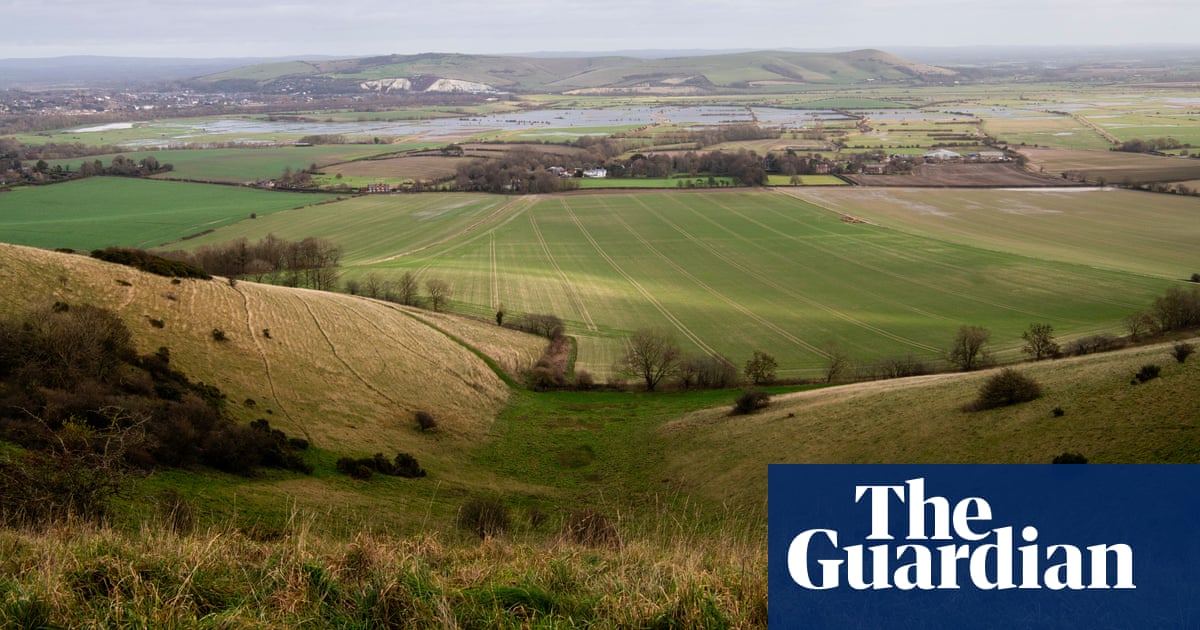In a field in the South Downs national park, undulating green hills meet the sky. In the distance, villages built of flint sit in the valleys, and chalky white cliffs lie like giant beached whales above the Channel.
For decades, the field where I’m standing has been in an arable cycle. It was last sown for wheat in 2022, and this year would have been planted with barley. Instead, it was sown with wildflowers: yarrow, vetches, clovers and oxeye daisies lie awaiting spring, when the monotonous green will break out into a sea of colour.
“We’re habitat banking,” says Ben Taylor, manager of Iford Estate farm near Lewes, in East Sussex. This farm is one of five in the country selected by government as a pilot project for the biodiversity net gain (BNG) scheme. Under the proposed rules (for England only at this stage), new roads, houses and other building projects must achieve a 10% net gain in biodiversity if nature is damaged on site: if a forest is bulldozed to make way for an apartment block, the developer must recreate a similar habitat, plus 10%. The priority is finding space for nature onsite, but if that is not possible, habitats are to be created elsewhere, ideally in the local area.
This is the best summary I could come up with:
In the distance, villages built of flint sit in the valleys, and chalky white cliffs lie like giant beached whales above the Channel.
Instead, it was sown with wildflowers: yarrow, vetches, clovers and oxeye daisies lie awaiting spring, when the monotonous green will break out into a sea of colour.
Under the proposed rules (for England only at this stage), new roads, houses and other building projects must achieve a 10% net gain in biodiversity if nature is damaged on site: if a forest is bulldozed to make way for an apartment block, the developer must recreate a similar habitat, plus 10%.
If launched as planned, BNG could transform thousands of hectares of English farmland, but the initiative has been dogged by delays, with some researchers concerned it could be scrapped altogether.
Sophus zu Ermgassen, an ecological economist from the University of Oxford, and author of the study, says: “If those promises of future habitats do not materialise, what is being facilitated by BNG is a considerable loss of green space.
The nutrient neutrality scheme aimed to save England’s rivers from being overloaded with nitrates and phosphates by allowing developers to pay for “credits” to improve local wetland areas.
The original article contains 1,100 words, the summary contains 199 words. Saved 82%. I’m a bot and I’m open source!
I’ll help! But I’ll need a living wage. I’d be very good at this.



